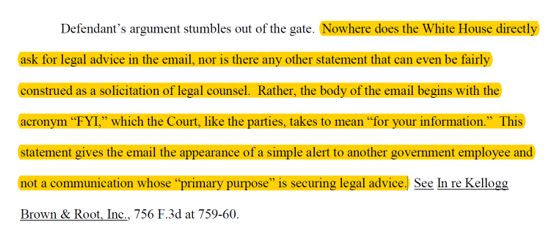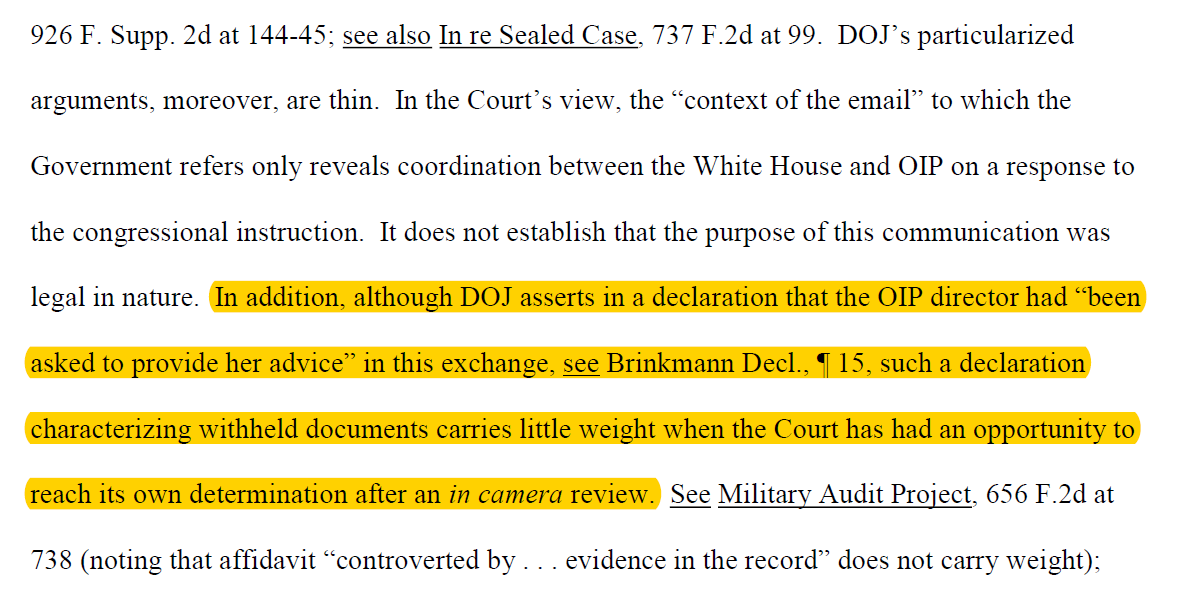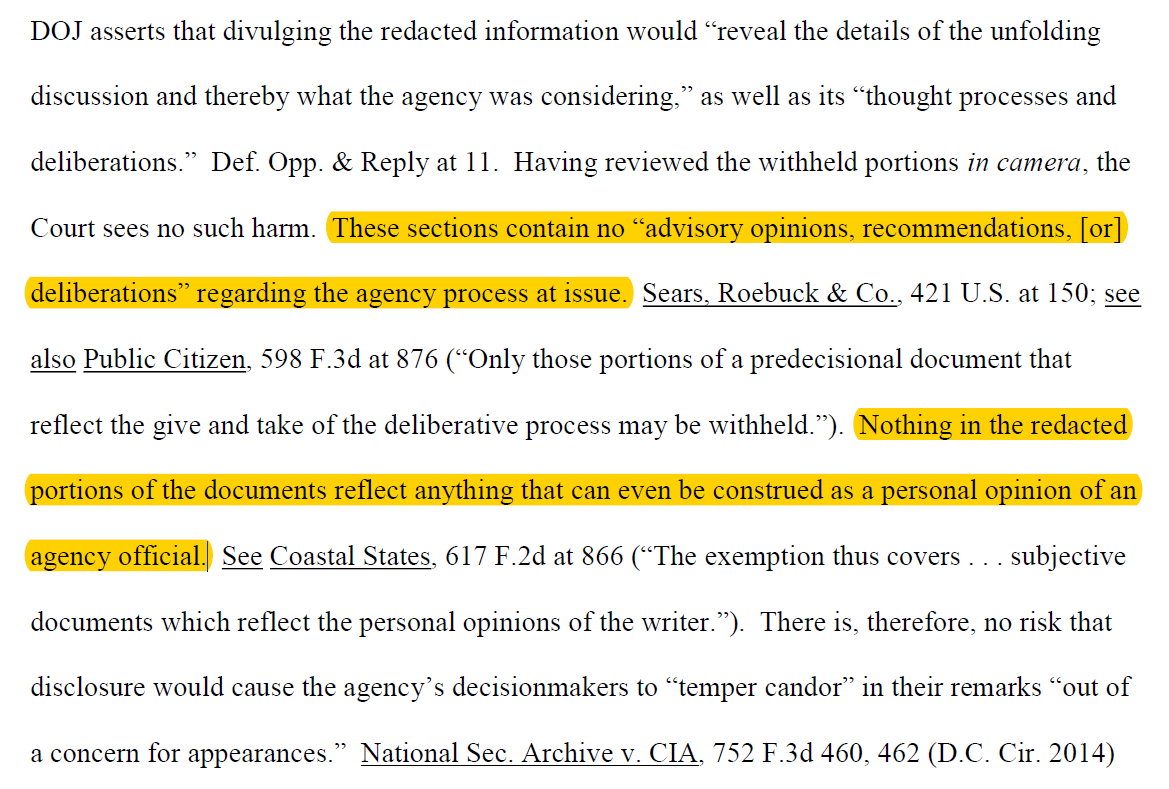Judge James Boasberg of the U.S. District Court for the District of Columbia yesterday granted in part Cause of Action Institute’s (“CoA Institute’s) motion for summary judgment in a Freedom of Information Act (“FOIA”) lawsuit against the Department of Justice (“DOJ”). Judge Boasberg vigorously rejected DOJ’s attempt to withhold records of communications with the White House under the attorney-client and deliberative process privileges. CoA Institute filed its lawsuit in July 2017, after DOJ refused to produce records that would have revealed whether it was involved in implementing a controversial directive from the U.S. House of Representatives Committee on Financial Services. The underlying request at issue, which CoA Institute submitted in May 2017, followed reports that Jeb Hensarling, Chairman of the Financial Services Committee, had directed twelve agencies—including, the Department of the Treasury and eleven other entities—to treat all records exchanged with his Committee as “congressional records” not subject to the FOIA.
Judge Boasberg’s most damning holding concerned DOJ’s misuse of Exemption 5 to redact a line from a White House email and to withhold in full an attachment—presumably the letter from Chairman Hensarling—received by several Executive Branch agencies. As the Court explained:
Indeed, any reasonable individual would reach the same conclusion as the Court after cursorily examining the record at issue.
The sole basis of DOJ’s defense was the declaration a senior agency attorney, who claimed that the White House email reflected a “routine” sort of “consultative exchange” in which Office of Information Policy Director Melanie Pustay was asked for “advice.” But the Court saw through this self-serving statement and explained that DOJ had failed to meet its burden in proving that the specific record at issue reflected the provision of legal services. To rule otherwise would tend to turn any correspondence with a government attorney into privileged material.
The Court also failed to see how the withheld material contained any confidential information. For example, the attachment to the White House email—ostensibly, a copy of the Hensarling letter—was merely one of many substantively identical letters that DOJ admitted were received across the Administration. There was simply no agency-specific confidential information at issue.
Judge Boasberg further rejected DOJ’s use of the deliberative process to withhold the same White House communications. Despite the government’s arguments during briefing, after reviewing the records itself, the Court determined that they contained nothing that could be construed as deliberative.
Although the court granted in part CoA Institute’s motion, it also sided with the government over the withholding of eleven pages of records exchanged between DOJ and an unidentified agency. After reviewing those records, the Court determined that they did, in fact, reflect the agency’s decision-making processes and revealed the solicitation and provision of confidential legal advice. Moreover, there were no reasonably segregable portions of the records that could be released to CoA Institute. Finally, the court did not resolve the parties’ dispute over the “foreseeable harm” standard that Congress introduced in the FOIA Improvement Act of 2016..
* * *
The Court has ordered DOJ to release unredacted versions of the White House communications. Once these records have been released, we will provide another update addressing their contents.
Judge Boasberg’s opinion is available here.
Ryan Mulvey is Counsel at Cause of Action Institute
